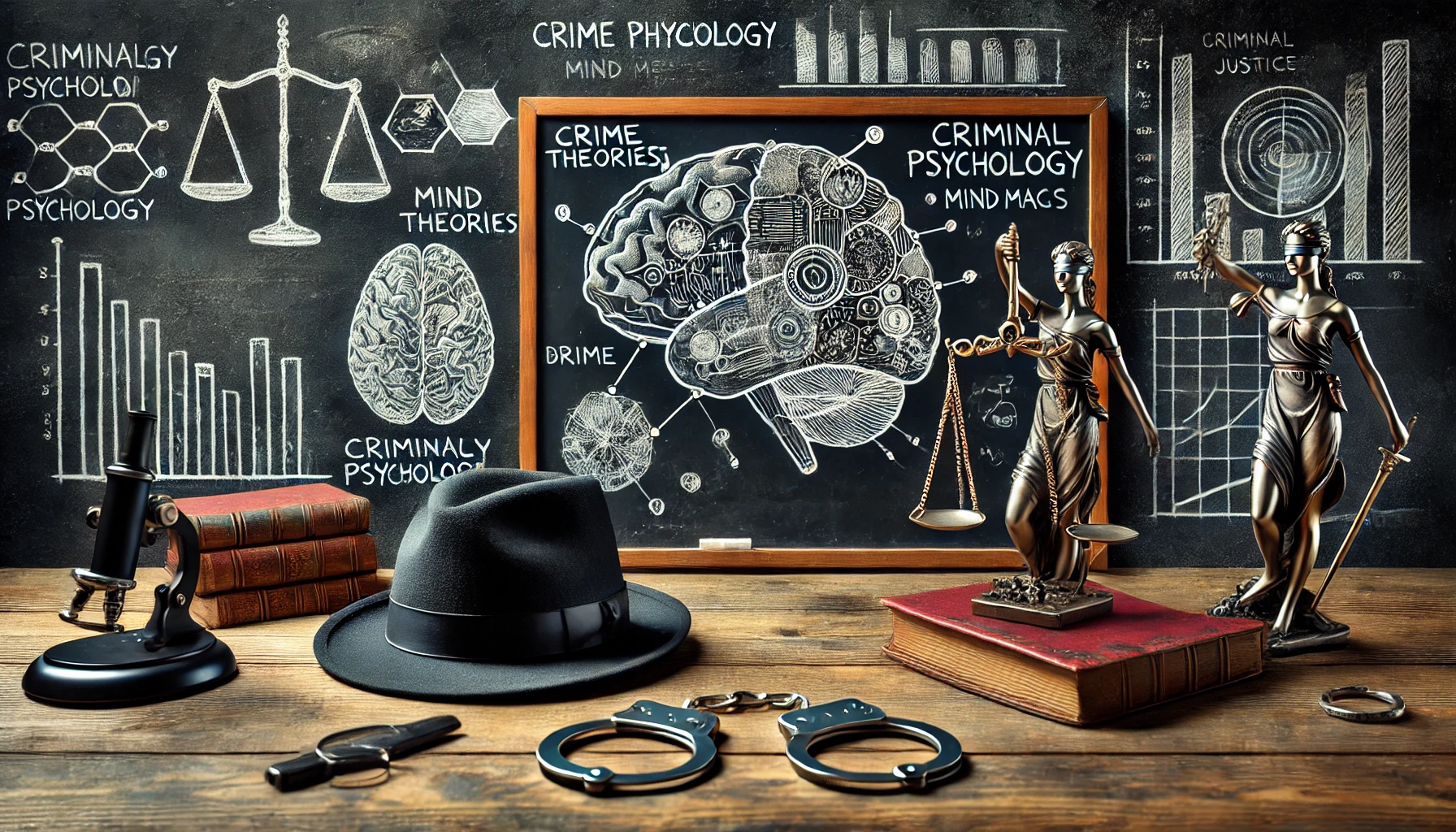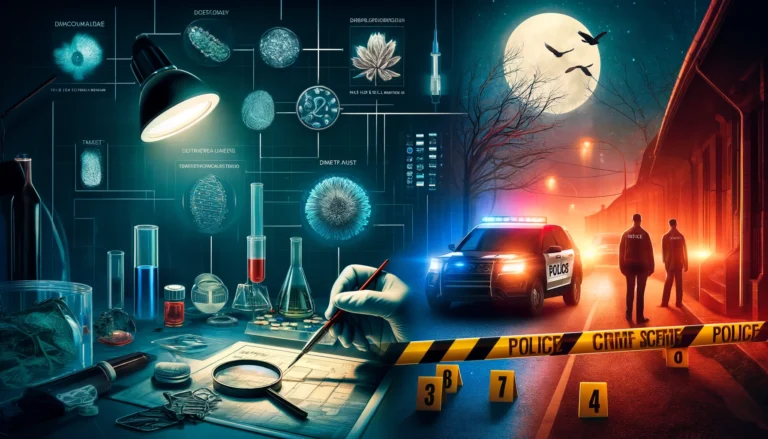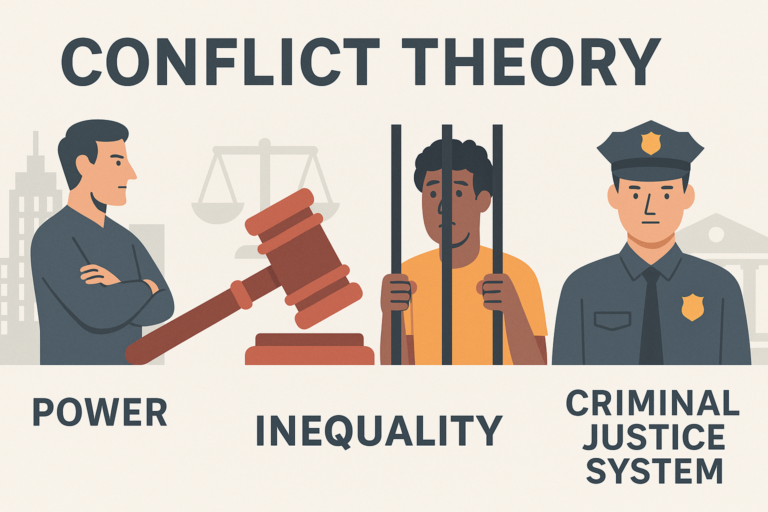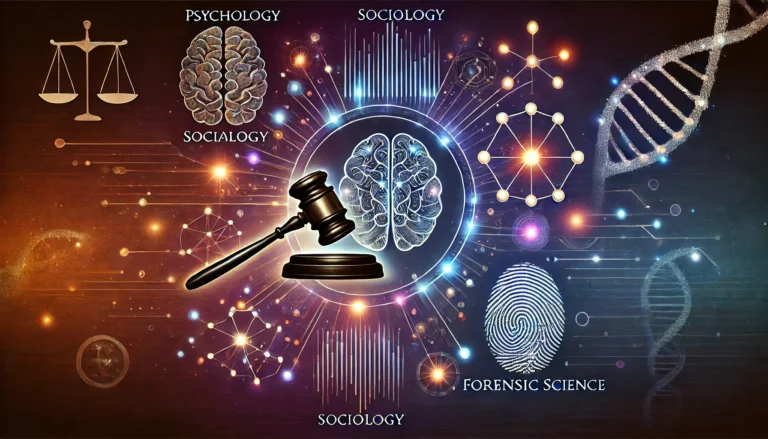Criminal Psychology and Criminology
Criminal psychology and criminology are two complementary fields that offer profound insights into the nature of crime, criminal behavior, and the systems designed to prevent and address crime. While criminology provides a broader, multidisciplinary understanding of crime from a societal perspective, criminal psychology focuses on the individual’s mental and emotional processes that lead to criminal behavior. Together, these disciplines play a critical role in shaping modern approaches to criminal justice and public safety.
The Definition and Scope of Criminal Psychology
Criminal psychology, also known as forensic psychology, studies the psychological mechanisms underlying criminal behavior. It explores the motivations, thought processes, and emotional states of offenders, aiming to understand why individuals commit crimes. This field bridges the gap between psychology and the legal system, providing valuable insights for law enforcement, judicial processes, and rehabilitation programs.
Key areas of focus in criminal psychology include:
- Behavioral Analysis: Understanding patterns and triggers of criminal behavior.
- Offender Profiling: Creating psychological profiles to assist in investigations.
- Risk Assessment: Evaluating the likelihood of reoffending.
- Rehabilitation: Designing programs to address psychological issues in offenders.
By examining these aspects, criminal psychology helps create more effective intervention strategies and supports the broader goals of criminology.
The Definition and Scope of Criminology
Criminology is the scientific study of crime, criminal behavior, and the societal responses to crime. It encompasses various disciplines, including sociology, psychology, law, and anthropology, to understand the causes and consequences of crime.
Key areas of focus in criminology include:
- Crime Trends: Analyzing patterns and statistics to identify societal factors influencing crime.
- Theories of Crime: Exploring frameworks like strain theory, social learning theory, and labeling theory.
- Criminal Justice Systems: Evaluating the effectiveness of law enforcement, judicial processes, and correctional systems.
- Prevention Strategies: Developing policies and programs to reduce crime rates.
Criminology provides the macro-level perspective needed to address crime systematically, complementing the micro-level insights offered by criminal psychology.
The Intersection of Criminal Psychology and Criminology
The integration of criminal psychology and criminology creates a comprehensive approach to understanding and addressing crime. By combining individual-focused psychological analysis with broader societal studies, these fields provide a multidimensional perspective on criminal behavior.
1. Understanding Criminal Behavior: Criminal psychology examines the internal motivations of offenders, while criminology considers external factors like poverty, education, and peer influence. Together, they reveal the interplay between personal and environmental factors in shaping criminal behavior.
2. Enhancing Investigations: Offender profiling, a key tool in criminal psychology, benefits from criminological insights into crime patterns and trends. This collaboration improves the accuracy and efficiency of investigations.
3. Informing Policy and Rehabilitation: Criminology provides data-driven recommendations for crime prevention, while criminal psychology designs rehabilitation programs tailored to individual offenders’ needs. This synergy ensures policies and programs are both effective and humane.

Key Applications in Criminal Justice
1. Offender Profiling: One of the most notable applications of criminal psychology is offender profiling. By analyzing behavior, motivations, and crime scene evidence, psychologists develop profiles that guide law enforcement in identifying suspects. Criminological research enhances profiling by contextualizing crimes within societal trends.
2. Risk Assessment: Psychologists assess offenders’ risk of reoffending, helping courts make informed decisions about sentencing, parole, and treatment. Criminology provides additional insights into factors like recidivism rates and the effectiveness of interventions.
3. Rehabilitation Programs: Criminal psychology focuses on addressing cognitive and emotional issues in offenders, such as aggression or trauma. Criminology contributes by identifying broader societal factors that rehabilitation programs should consider, like community support and economic opportunities.
4. Crime Prevention Strategies: Both fields contribute to designing prevention strategies. For example, criminal psychology highlights the importance of early intervention for at-risk youth, while criminology identifies systemic issues like inequality and unemployment that must be addressed.
The Role of Research in Advancing Both Fields
Research is crucial for advancing the understanding and application of criminal psychology and criminology. Collaborative studies between these disciplines have led to significant advancements in:
- Understanding Mental Illness and Crime: Research into conditions like psychopathy and schizophrenia has improved the assessment and management of offenders with mental health issues.
- Evaluating Rehabilitation Effectiveness: Studies combining psychological assessments and criminological data have identified factors that contribute to successful reintegration into society.
- Developing Predictive Models: Using insights from both fields, researchers create models to predict criminal behavior and identify high-risk individuals or communities.
Challenges and Ethical Considerations
The integration of criminal psychology and criminology faces several challenges and ethical dilemmas:
- Balancing Individual and Societal Perspectives: Focusing too heavily on individual psychology may overlook systemic issues, while an overemphasis on societal factors may neglect the personal struggles of offenders.
- Privacy and Consent: Psychological assessments and criminological studies must respect individuals’ privacy and obtain informed consent.
- Bias in Profiling: Offender profiling must avoid reinforcing stereotypes and biases, ensuring fairness and accuracy.
- Resource Constraints: Limited funding and resources can hinder the application of insights from both fields, affecting the quality of interventions and policies.
Future Directions
The future of criminal psychology and criminology lies in greater collaboration and innovation. Emerging trends include:
- Technology Integration: Advancements in artificial intelligence and data analytics are enhancing both psychological assessments and criminological research.
- Interdisciplinary Collaboration: Combining insights from neuroscience, sociology, and law with criminal psychology and criminology can lead to more holistic approaches.
- Focus on Prevention: Shifting from reactive measures to proactive strategies, such as early intervention and community programs, will be key.
- Global Perspectives: Addressing transnational crimes like human trafficking and cybercrime requires integrating insights from diverse cultural and legal contexts.
Conclusion
Criminal psychology and criminology are indispensable in understanding and addressing the complexities of crime. By examining both individual motivations and societal influences, these fields provide a comprehensive framework for effective criminal justice policies and practices. Their continued collaboration promises a future where crime prevention and offender rehabilitation are more effective, equitable, and humane.







